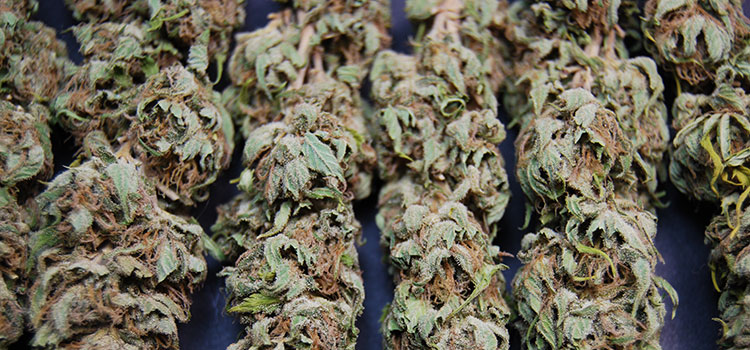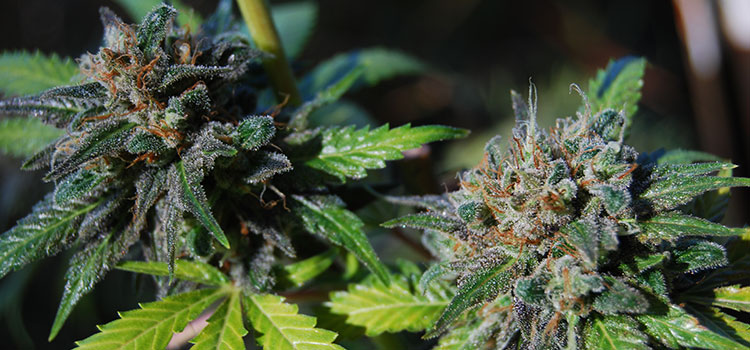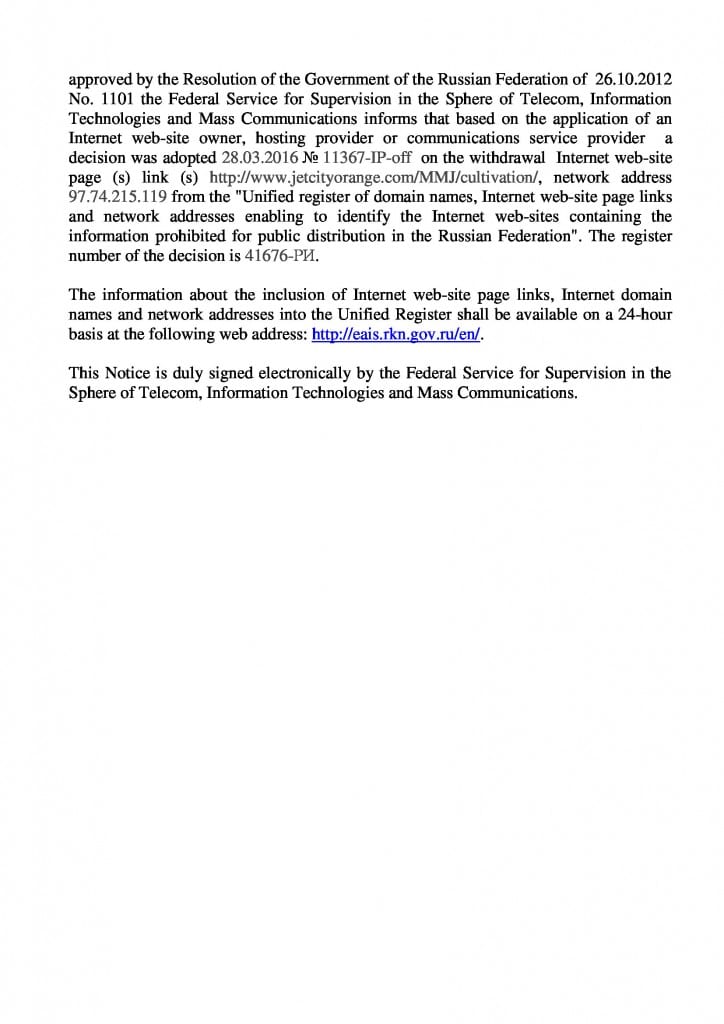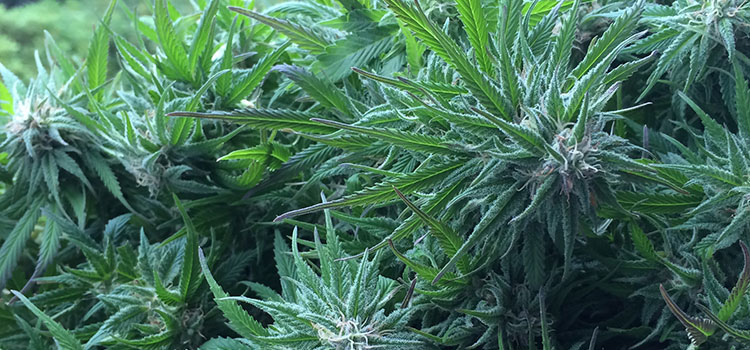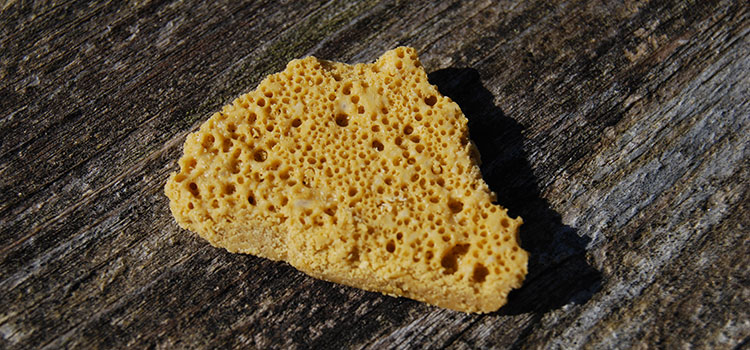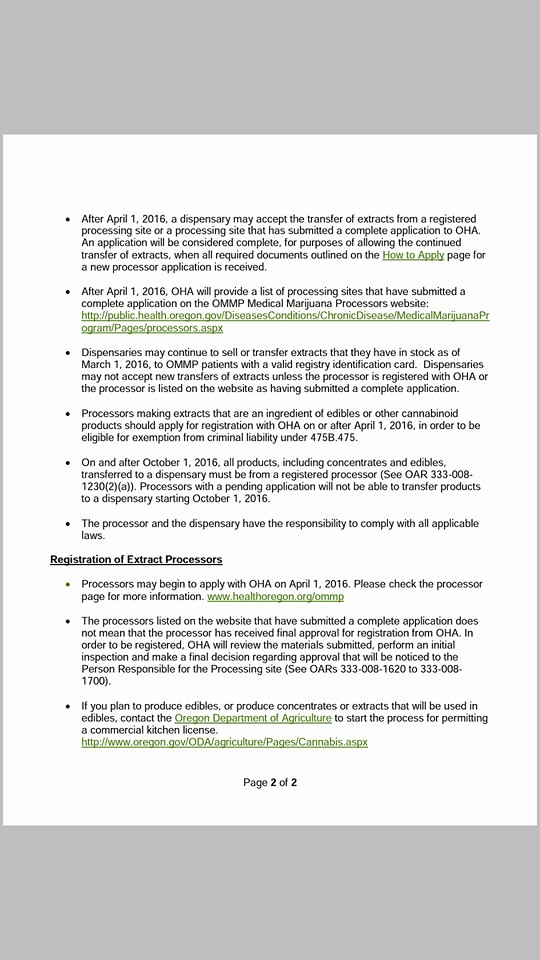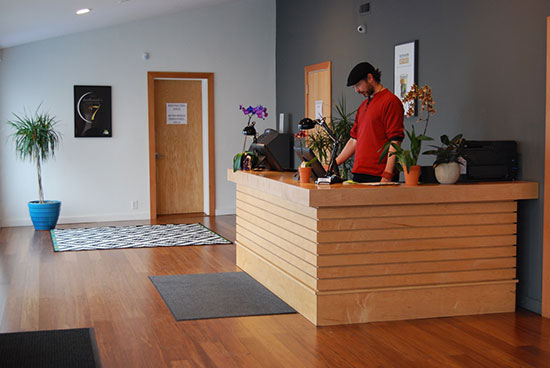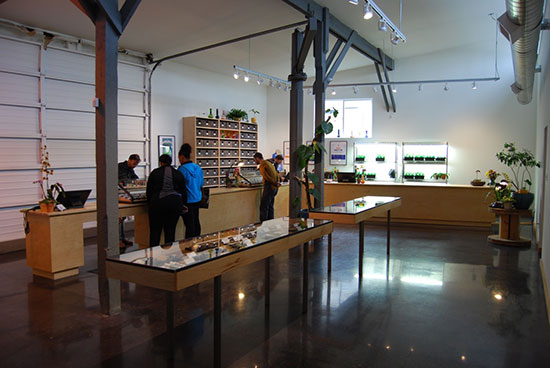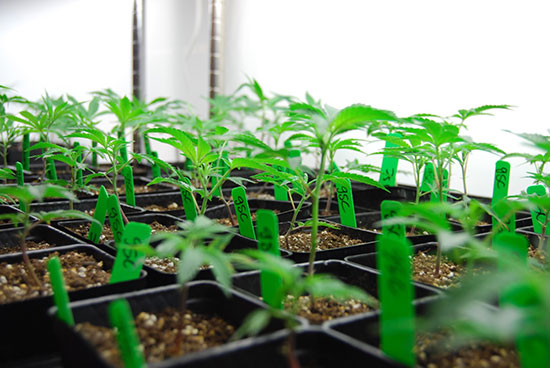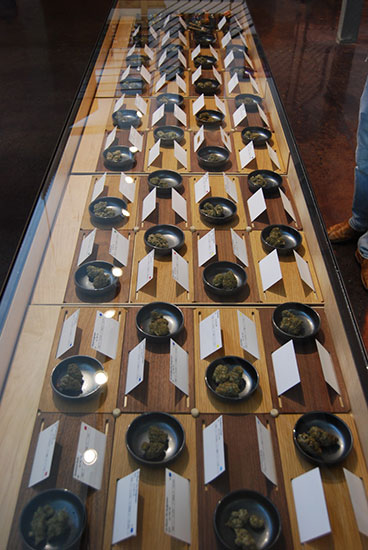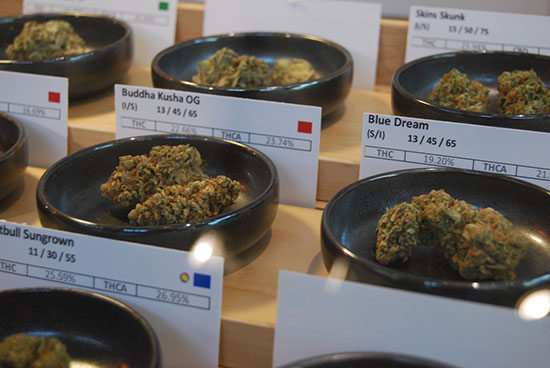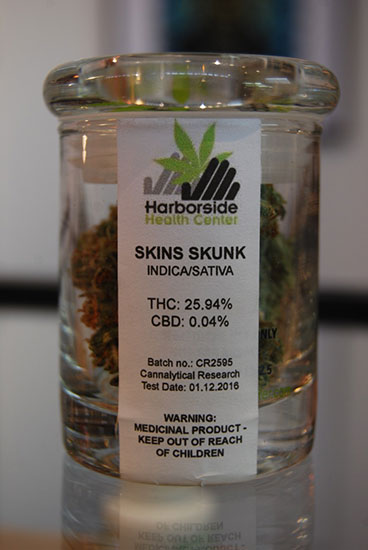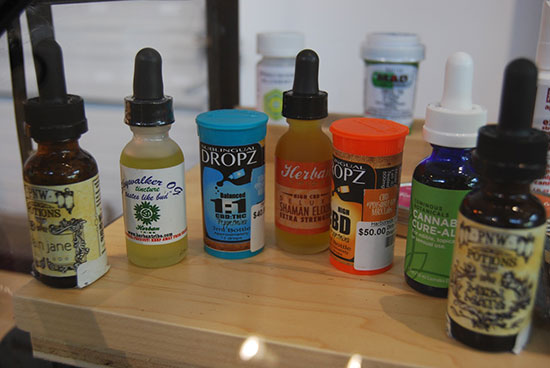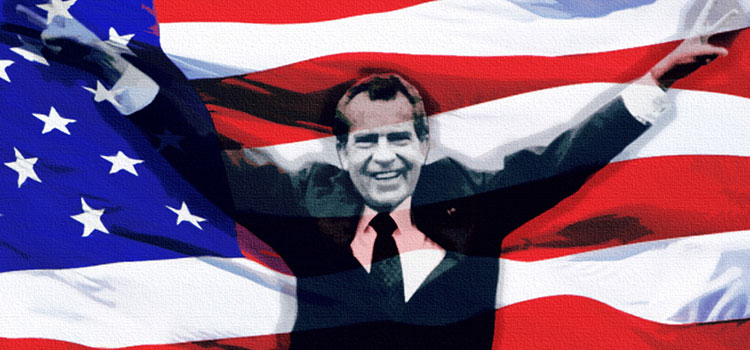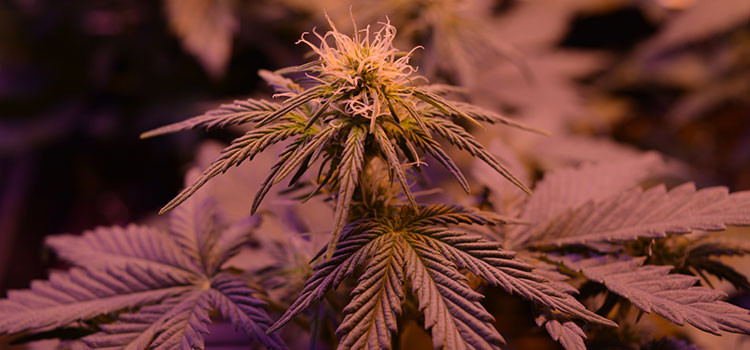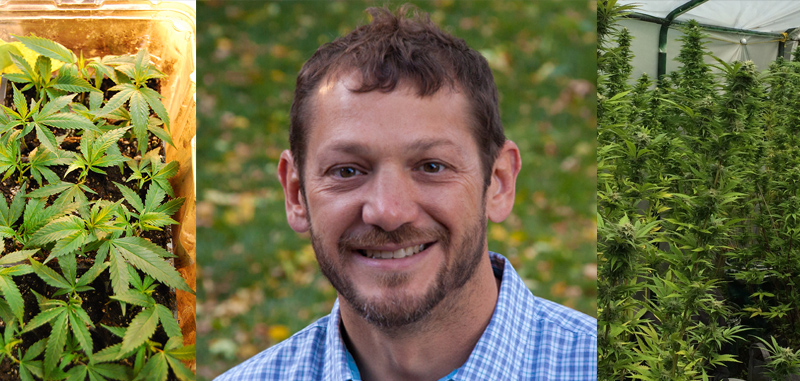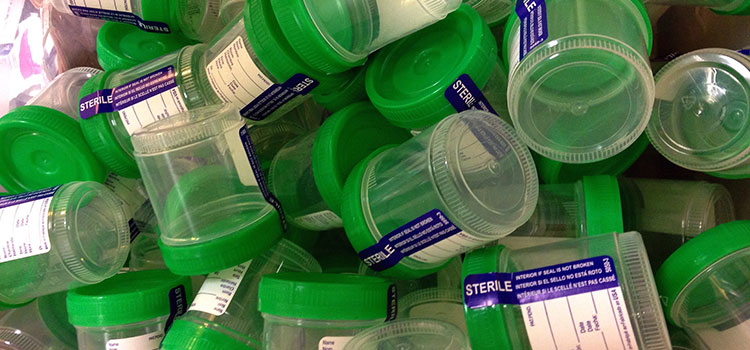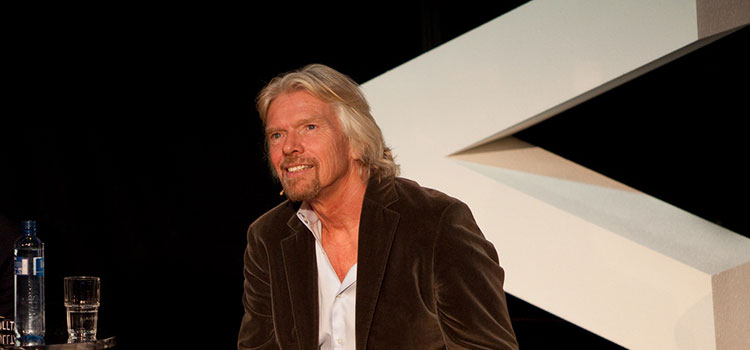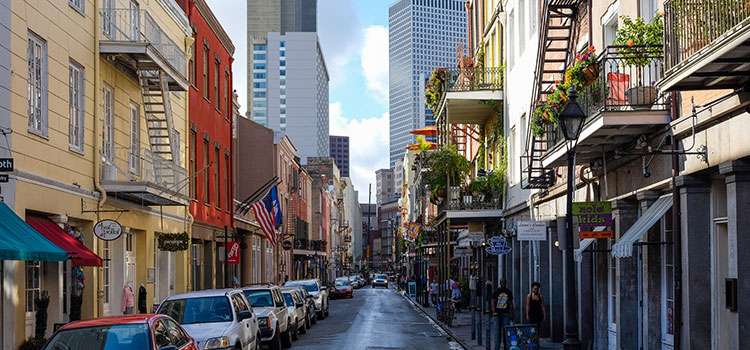Colin Bell, PhD. is the co-founder, co-inventor, and chief growth officer of Growcentia, a manufacturer of organic soil supplements designed to minimize environmental impact. In his previous career as a research scientist at Colorado State University, Colin focused on understanding plant microbial interactions and produced many peer-reviewed publications on microbial mediated processes to enhance plant growth. With Growcentia, he has taken his scientific knowledge and applied it to business, solving real problems faced by farmers who want to grow better crops via sustainable methods.
Colin recently joined our host Shango Los for a conversation about the transition from academic to entrepreneur, how he manages work/life balance, how he fosters teamwork and camaraderie among coworkers in a start-up environment, and more.
Listen to the episode using the media player below, or scroll down for the full transcript!
Subscribe to the Ganjapreneur podcast on iTunes, Stitcher, SoundCloud or Google Play.
Listen to the podcast:
Read the full transcript:
Shango Los: Hi there and welcome to the Ganjapreneur.com podcast. I am your host Shango Los. The Ganjapreneur.com podcast gives us an opportunity to speak directly to entrepreneurs, cannabis growers, product developers, and cannabis medicine researchers all focused on making the most of cannabis normalization. As your host, I do my best to bring you original cannabis industry ideas that will ignite your own entrepreneurial spark, and give you actionable information to improve your business strategy and improve your health and the health of cannabis patients everywhere.
Today my guest is Colin Bell. PhD, co-founder, co-inventor, and chief growth officer for Growcentia. Colin received his PhD in 2009 in soil microbial ecology. His academic research was focused on understanding plant microbial interactions, and soil microbial biogeochemical cycling. As a research scientist at Colorado State University, his many peer reviewed publications were centered on elucidating microbial mediated processes that enhance plant growth.
Colin left his academic position at CSU in March of 2015 to launch his startup company Growcentia. Their first product, MAMMOTH P, is a beneficial bacteria bloom stimulant that targets phosphorus cycling to maximize both quality and yield in cannabis plants. Today we’re going to talk about making a leap from academic to entrepreneur. Thanks for being on the show, Colin.
Colin Bell: Thanks Shango, how’s it going?
Shango Los: It’s going really great. I’m excited to have you on the show because a lot of people are doing one thing, and they really in their heart wish they were doing something else, specifically being an entrepreneur. I’m excited to talk about the travel that you’ve taken, so that maybe it inspires some others. Let’s get started by really cementing you in the academic world. What were you doing at CSU, and kind of steep us in that a little bit.
Colin Bell: Great. I’ll start, like you said, I received my PhD in soil microbial ecology in 2009 after doing a couple post docs with on the USDA and the Forest Service in Fort Collins, Colorado. I achieved my third post doc at Colorado State University working with my team Matt Wallenstein and Rich Conant, who are also co-founders with Growcentia.
After a couple of years I got promoted to research scientist 1, where the whole time and my whole academic career and my graduate career also was focused on understanding plant microbe interactions, and understanding nutrient cycle. Like we said, to kind of understand how plants and microbes have evolved together and how microbes might benefit plants, in light of climate change or anything else, to help promote their growth and their success. We just did that. That was kind of my dream, to be an academic research scientist at the Natural Resource Ecology lab at Colorado State University. We were very successful there for years.
One day, kind of how it came about is, we decided that all the publications that our team had been pushing out, which was many, many, we questioned the impact we were making in academia. We always felt that our research would really help agriculture in general, and improve agriculture sustainability, and our technology ultimately, or our knowledge and our publications that we provide to the scientific community would translate to improved management practices for more sustainable, natural ways for plants to grow, to improve yield to feed the globe, the growing population, the world. Thinking that one day, out of all the papers and all the grants that we wrote. We have this broader impact statement that all the grants require.
We talk about how our research is going to impact agriculture and farmers and help farmers grow better. We kind of came to the realization that farmers probably weren’t reading our publications. As a matter of fact, it validated that. We decided that to be hiring a pack of scientists, we should start focusing more on applied problems to try and get our technology in the hands and in the forum that farmers could use in this lifetime. That’s when we switched the lab, flipped the lab, started thinking about problems, and thinking about applying our knowledge into making something that could be applied into agriculture practices. Reshape the labs, started thinking about it from the perspective of a soil microbial ecologist and what microbes do well, and how to produce that and scale that. You know what microbes do do well, is cycle nutrients and provide nutrients to plants among other things. That’s why plants and microbes have evolved together basically since the beginning of time.
Shango Los: Before we get too much into talking about the product itself, I want to talk about the lab a little bit. You’re talking about being within academia at that point. I’m sure that there’s a fine line between you are doing the research under the auspices of the school, but then there’s a certain point where suddenly you are actually becoming a business, which is, I don’t know, not usually the role of what the school is looking for. They’re often going for pure research. I could be wrong, maybe schools now are actually trying to roll out these products. How did you skirt that line between running your lab as a research lab versus coming up with the preparations to put a product onto the market.
Colin Bell: That’s a great question. Honestly, the truth is even a decade ago universities were focused on basic research. That’s kind of the structure. The infrastructure, truly, is still like that, but there’s a great push and a much improved emphasis on actually launching technology from the lab into the marketplace. I think it was helpful. Most universities now have tech transfer departments that focus specifically on helping researchers understand how to bridge that gap between the scientific lab and the marketplace.
I think there’s definitely a lot of work to do and a lot of progress to be made, but there has been a lot of progress made certainly in the last decade. How we did that really is working with our tech transfer department at Colorado State University and going through some rigorous incubators, business incubators. For example, the NSF I-Corps accepted us as a team. The NSF I-Corps program is a brilliant program developed by the national government, the NSF, to help researchers understand specifically how to identify the value of the technology that they’re developing potentially in the lab, and what it takes to launch that into a marketplace.
That was a rigorous training based on lean start-up methodologies of Steve Blank and some others, where we basically treated this exercise like an experiment. We had these hypothesis of value, and we had these hypothesis of customer segments. The way we validated that is we hypothesized there was particular value for whatever product. Our particular product was enhancing nutrient uptake to plants that ultimately enhance yield. We had that early stage, and we were very naive going into this, assuming that farmers would buy this type of product. The exercise is if you think you have a value and you think, you hypothesize, you have a customer segment, what you should do now is go talk to a hundred of those customer segment archetypes, farmers in this case, to validate if you’re right or not.
Shango Los: It sounds like you’re actually making almost your own focus group. You’re making your hypothesis, and I love hearing basic marketing repeated to me in lab speak. I’m enjoying this a lot. But also you would then go out and talk to your hundred subjects, and then you would be building up your own data base specific to your own product.
Colin Bell: That’s exactly right. What we’re trying to do is validate the value propositions that we think our product would bring to market. Through that process it was just invaluable, because we realized very quickly where we were wrong. We realized very quickly what the value was, with any particular agriculture market segment, that our product would need to meet to be a successful product to launch into the marketplace.
For example, if you talk to producers in the larger agro space, such as corn farmers and wheat farmers, et cetera, no matter what you think your product does to enhance the environment, et. We were kind of thinking about our product from an ecological standpoint also. It’s a natural microbial additive that improves nutrient use, but also it would allow us to potentially minimize inputs, which are sometimes caustic to the environment, such as excessive fertilizer, etc. We didn’t emphasize yield as a value proposition early on in our discovery. What we realized is that was the only thing almost that mattered to be able to successfully launch our product into the marketplace. That was the key value proposition for most agriculture market segments.
Shango Los: I would think that that is actually probably one of the reasons that you’ve had so much success early on. We’ll talk more about the success of the product in a minute. But specifically the fact that many entrepreneurs will come up with the idea, they’ll be passionate about it, and then they’ll go to the market with what their hunch is, but because you came at it as an academic scientist you’re like, “Well, I wouldn’t go to the market before I test my hypothesis,” and so you created your own study by going out and talking to these hundred farmers, which gave you all this new focus group information which becomes your new evidence. I would think that if most entrepreneurs would do that in their own way, we’d see a lot less failing companies.
Colin Bell: That’s exactly right. It’s called the lean start-up approach, and that’s exactly what I think you should do. I think you nailed it. Most startups fail because they haven’t rigorously validated the value and/or the customer segments that need that value, what we look for as pain points. What can that customer not live without? If your product can fill that pain point, you know you definitely have a successful product, but you have to validate it.
Shango Los: Thanks Colin. We’re going to take a short break and be right back. You are listening to the Ganjapreneur.com podcast.
Welcome back, you are listening to the Ganjapreneur.com podcast. I’m your host Shango Los, and our guest this week is Colin Bell of Growcentia. Colin, before the break we were talking about your background in academia and how deeply you were involved as a research scientist, and how the research that you were doing was going to help farmers, but you weren’t sure how the farmers were going to find out about it. You shifted your research into going past just developing what the farmers could do, and figuring out how to get your research into the hands of farmers by way of a product possibly. That brings us to where we are now.
The first product that Growcentia has put out is the Mammoth P. Can you tell us what is unique about this product that caused you in academia to go, “Wait a minute, this is something new and this could actually do good”?
Colin Bell: Sure. We are really excited about MAMMOTH P early on, and still. We are really excited that the technology because it’s so unique. The way we were thinking about developing a new microbial biostimulant product to enhance plant growth was just something that no other company, or any other lab for that matter, has come up with. What we wanted to do was target functionality at the microbial community level.
We wanted to work with microbial communities because we know in nature microbial species just don’t persist. They have to persist and function as a community. What we also want to do was train functionality for specific nutrient cycling. That way, we thought over time we could actually prescribe different microbial inoculants to treat certain deficiencies of nutrients, such as phosphorus or nitrogen. Our first product, MAMMOTH P, is a microbial community that specifically targets phosphorus, which means it liberates phosphorus as it’s bound in soylent substrates, which happens naturally almost immediately once phosphorus is added into soil, potting mix. It even chemically transforms into plant unavailable forms in hydroponic systems. We were able to train, using our proprietary microbial trait selection platform, to train microbial communities to increase their ability to cycle phosphorus by up to 30 times greater than any natural communities that we’ve found in nature.
Shango Los: To put it in my own terms, what it sounds like is phosphorus is going to be naturally occurring in the soil, but there are challenges for uptake for the plant. What you have done is you’ve put together a community of specially chosen microbes that when you introduce them to the soil, they do the job of unhinging the phosphorus from wherever they’re tied down, to become more bioavailable for your plant so your plant is able to thrive with more phosphorus, because it’s so much easier for it to get it out of the buffet in the soil. Is that a good way to put it?
Colin Bell: Yeah, I think that’s very well said. Nice job there. That’s exactly what it is. We find that the plants are able to take up a lot more phosphorus with our additive which enhances the plants ability to improve their bloom or yield, no matter what that plant might be. In the case of cannabis, it actually translocates phosphorus and micronutrients to higher levels than the plant could without our inoculum enhancing bloom growth and the density and the quality of the flower.
Shango Los: I have a feeling that your answer to this next question’s going to be over your head, but I’m dying to hear the answer anyway. I would love to hear you contrast how phosphorus is normally taken from the plant, what that process is like, compared to when you use your microbial communities. Kind of illustrates for us the difference, the value proposition, of why the microbial works so much better.
Colin Bell: In processing, now we identified this problem actually in natural agriculture soils, which is a prolific problem across the country. When farmers add phosphorus fertilizer to soils, up to 70% becomes almost immediately unavailable to plants because phosphorus binds, it’s chemically sticky, to minerals and carbon substrates alike. Phosphorus will immediately transform, once it hits a substrate, into plant unavailable forms. It’s a really unique and interesting ecological problem, because farmers really need, of all crops, really need plants that take up as much phosphorus as possible. Across all crops, phosphorus is in high demand, especially during the yield or flower cycles of the plant.
Over time, the phosphorus will continue to build up —let’s just talk about agro ecosystems right now — for up to two decades, where the exchange sites will keep on getting stuck with these phosphates, which is a plant available form of phosphorus, until over time the soil saturates and then flushes through the environment and creates huge ecological problems like algal blooms that we see quite often, polluting water ways, etc.
What this microbial community does is we’ve improved their capabilities to solubilize, which means exchange, those phosphorus molecules that were bound to the soil back into the solution in the plant available form phosphate PO4, which allows the plant to take up as much phosphorus as possible, mining those phosphates as they’re bound to soils and substrates alike. This happens even in hydroponic systems, and prolifically in cocoa, and peat, and soil systems as well.
Shango Los: Great. I followed that. I want to change gears for a second here. Now that we understand the importance of the product and why you were so excited to make the jump from academia to the entrepreneurial side, tell us a little bit about how you chose to then actually form the company. I’m holding a bottle of your product in my hand, and it is gorgeous. The design is great, the copywriting is great. Whoever laid out your branded colors. It’s an incredible, branded experience which you really don’t see all that much in the cannabis industry, or maybe we are just now starting to. You must have put some work into building the idea of the company around the product that you were feeling jazzed about.
Colin Bell: That’s right. I think what I have to emphasize for sure is nothing happens alone. We have a wonderful team helping us in every area of our business. Not only do I have wonderful and brilliant co-founders, but we hired a CEO that flew all the way from Chicago to be with us here in Fort Collins, Colorado, that’s grown many start-ups from the very beginning to multi-hundred million dollar companies. We have a great team on the ground, in all our packaging production. We talk about branding and marketing, we have consultants here, local in Fort Collins, Colorado, to help us with our social media. Another one Push IQ Chris Richardson, that helps us with our branding.
We also have a great list of external advisors, including the CEO of New Belgium and a former employee of theirs, Greg Owsley, which actually branded the New Belgium Fat Tire brand from their early days, which helped them be a very successful global company. Really, I didn’t do anything by myself. I surrounded myself and our ideas. We all want to be the dumbest person in the room. If we’re that, then we can really bring talent around the table to help us come up with these great ideas.
What we want to do for this is own our culture. We’re a scientific, highly technical company. The three co-founders including myself are PhD soil microbiologists. My other two co-founders are still faculty at Colorado State University. We wanted to be distinguished in every way we possibly could. We felt that clean brand, the white label with the mammoth, which is super iconic, really stood out and really kind of illustrated who we were as a company.
Shango Los: It is a good thing to surround ourselves with the people who are smarter than us when we’re building a company. The group that you have pulled together is pretty extraordinary though. I’m curious, were these people that were already in your network, because you are naturally a networker as an academic, or is it just that all of these people are smart enough to live in Fort Collins, Colorado, or is this something that people were attracted into your sphere of influence because of the incubator?
Colin Bell: I think a little bit of everything. We didn’t have these people in our lives before we started Growcentia, but what we do do is reach out to a lot of people. We present people with good opportunities. I think people see a good thing, the good thing that we’ve done with Growcentia, and that’s basically create a really interesting product in a very, very interesting market. We have some really compelling values. Not only do we have a wonderful product, but we have a wonderful platform that allows us to create a family of products.
Not only are we in this wonderful, very exciting market, which is projected to do just amazing things, we’re at the very base of something, that we think we can grow with the cannabis market as it grows. That’s very exciting. Our product is very well positioned to bring value into other markets too. That kind of started also with our investors M34. We were able, after three incubators, to bring on an early seed investment which allowed us to launch the company. That’s when I left the university, in March of 2015, to start the company.
Like I said, when you have a great story- I mean, my son and I found an old transmission shop here in Fort Collins, Colorado. We cleaned it out, we painted it, we mopped the floors 30 times, and turned it into our bio-production facility. Before that, I was working out of my one car garage that I quickly scaled out of after my first shipment of bottles came, and two pallets got dropped in my driveway and blocked the cars from coming in. It was really lean start-up, I think, really compelling our team. Obviously, very compelling. We’re all a driven group that wants to have a lot of fun and do great things.
Shango Los: Right on. We’re going to take another short break and be right back. You are listening to the ganjapreneur.com podcast.
Welcome back. You are listening to the Ganjapreneur.com podcast. I’m your host Shango Los, and our guest this week us Colin Bell of Growcentia. In the last segment, we were talking about specifically Growcentia’s first product, MAMMOTH P, and why it is unique, and more importantly why it caused Colin to decide to leave academia to become an entrepreneur and back it up. One of the things I really enjoyed when we were talking about bringing your product to market, Colin, was the interesting way you used lean to go out into the field and make sure your customers wanted your product before you went to the trouble of bringing the product to market.
When I was hearing that, it also made me wonder how you, as a research scientist, approached life work balance, because just like many entrepreneurs who go to market with a product that they haven’t actually market tested yet, they’re going really on passionate intuition and luck. You didn’t go that way, you wanted data, hard data, before you took your product to market. How do you handle work life balance, right? I’ve a feeling that you might have schematics drawn up to help you do that.
Colin Bell: Such a great question. It’s such an incredible challenge, especially for myself. I think for most of us in academia, we’re such a driven team and driven individuals. I think getting your PhD, going through that process, kind of weeds out the people that aren’t just kind of really obsessively driven to push, push, push. Saying that, what I realized, especially after I left the lab and left academia and started this start-up, was there’s never enough hours in the day. If you don’t take time for yourself no one else will, and that’s really unsustainable. I’ve made it a goal, and it’s really a professional goal, that we write out every year, or every quarter, if we’re not accomplishing it, to make sure not only we’re accomplishing our benchmarks and our goals professionally and internally with Growcentia, but that we have a whole list of personal goals and needs that we meet on a regular basis also.
For me personally, and my whole team, especially the co-founders, we love to ride our bikes. I personally like to run. We try to stay fit. Fort Collins is a nice environment to do that for sure. That’s what I really do, I incorporate — I’m kind of a boring guy. I work a lot and I work out a lot, and I try and have some downtime. I’m trying to balance all those things, but I need friends, I need family, I need fitness. I definitely need success in every area of my life, and that’s in all my relationships, especially with work. Ultimately, if I’m happy, I’ve succeeded. All these things in my life make me happy, and fulfill me, and so that’s what I do. I could just keep on doing that.
Shango Los: A couple shows ago, we had on Tom Burns, he’s a business philosopher who started as a yogi and is now in the cannabis business, and he says, “First, you feel good, and then you do good.” There’s a lot of that in what you just said. I also think it helps with working all the extra hours that you almost always have to do with a start-up, since fitness is one of your key things. So many entrepreneurs, they get busy, suddenly they’re not eating properly, and they’re not getting their exercise. Not only are they pushing their bodies harder with more stress and more awake time, but then they’re also not feeding the body what it needs. I would think that having a fitness regimen that you actually share with your co-workers, so you’re being supported in it, that’s probably a really great secret to success.
Colin Bell: I think so. I mean, I feel the success whenever we can do that. Actually, we have daily squat jumps and push ups and pull ups as a team in the lab, or we’ll have ten people or fifteen people in the back of the production facility, “Okay,” we’ll yell, “All right, it’s time!” We have monthly goals where we up that. We’re all jumping around, doing our squat jumps and push ups. But you know what? We all enjoy it, and it just makes us feel better, gets the blood flowing, and a sense of camaraderie and progress.
Shango Los: Oh man, this interview’s going to get you so many job inquiries it’s ridiculous, it sounds like a great place to work.
Colin Bell: Sure.
Shango Los: I want to hit one more thing. We’re almost out of time here, but one of the things that I don’t know anything about, like for example, I wasn’t too deep when you talked about your university having a tech transfer department, that’s pretty cool. That’s a new thing since I left school. What happens with the income? Since you came up with the ideas at the school in the research lab do they get a part of it, or is it they like to have the reputation of spinning off new technologies and businesses? How does that work?
Colin Bell: That’s kind of a big conversation, but in brief, and it in most universities …
Shango Los: Yeah, can you do it in 90 seconds?
Colin Bell: Yeah, yeah. Universities, if you go look at technology at the university, university actually owns that technology. As a research scientist that developed a technology that launched into the marketplace, I had to license the technology, and we did successfully, from the university. The university gets part ownership in that technology for sure. We went ahead and patented that technology so we could protect it in the marketplace, and we launched it. Colorado State University is a true partner with us in this process, being the owner of the technology. Future technology, as you launch your company and you’re in the private sector, you’re going to develop more technology which you would probably own as a company. That’s the path that most people follow whenever they actually launch a company and they’re at one point separated from the university autonomously, if you will.
Shango Los: Right on. Well, for being a really big topic you actually distilled that business model really simply, so thank you for that. That’s really interesting. That’s also all the time that we’ve got today. Colin, thank you so much for coming on the show and sharing your experience. I’m sure that you have inspired a lot of people to consider making that job.
Colin Bell: It was a pleasure, it was really fun to be here. Thank you very much for having me.
Shango Los: You can find out more about Colin Bell and MAMMOTH P at their website, mammothmicrobes.com, M-A-M-M-O-T-H-M-I-C-R-O-B-E-S.com. You can find more episodes of the Ganjapreneur Podcast in the podcast section at Ganjapreneur.com, and in the Apple iTunes Store. On the Ganjapreneur.com website, you will find the latest cannabis news, product reviews, and cannabis jobs updated daily, along with transcriptions of this podcast. You can also download the Ganjapreneur.com app in iTunes and Google Play. You can also find this show on the iHeartRadio network app, bringing Ganjapreneur to 60 million mobile devices. Do you have a company that wants to reach our national audience of cannabis enthusiasts? Email grow@ganjapreneur.com to find out how. Thanks to Brasco for producing our show. I’m your host, Shango Los.

